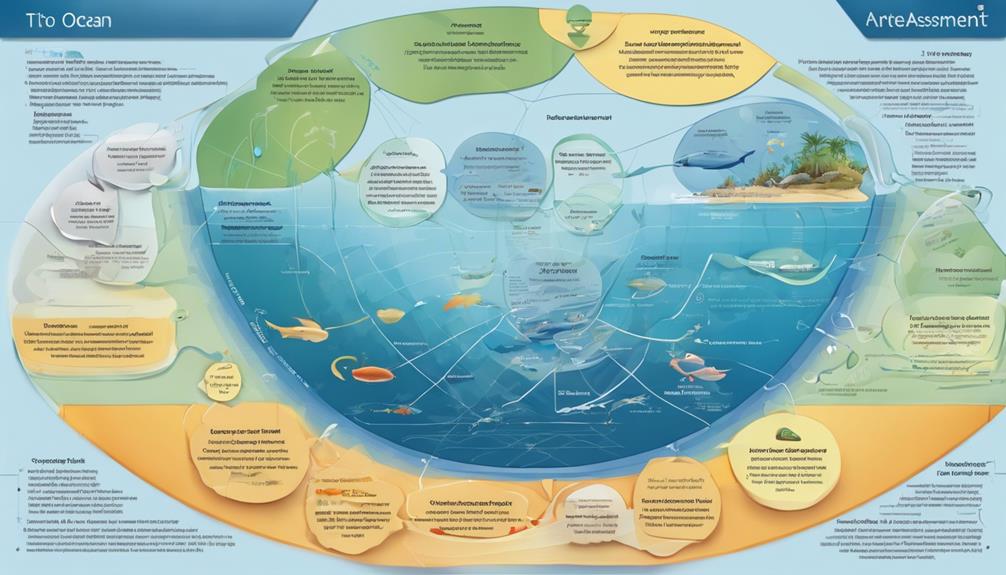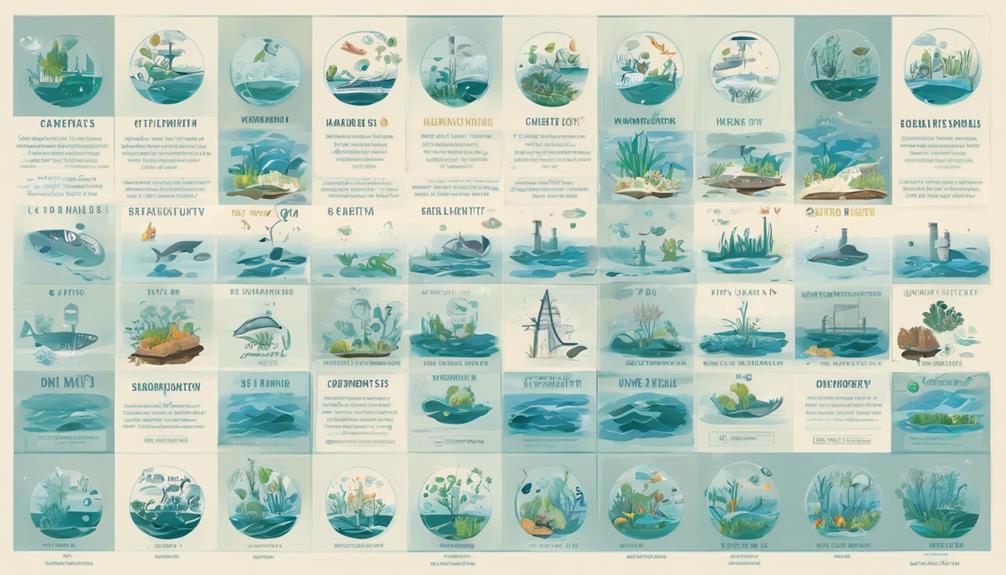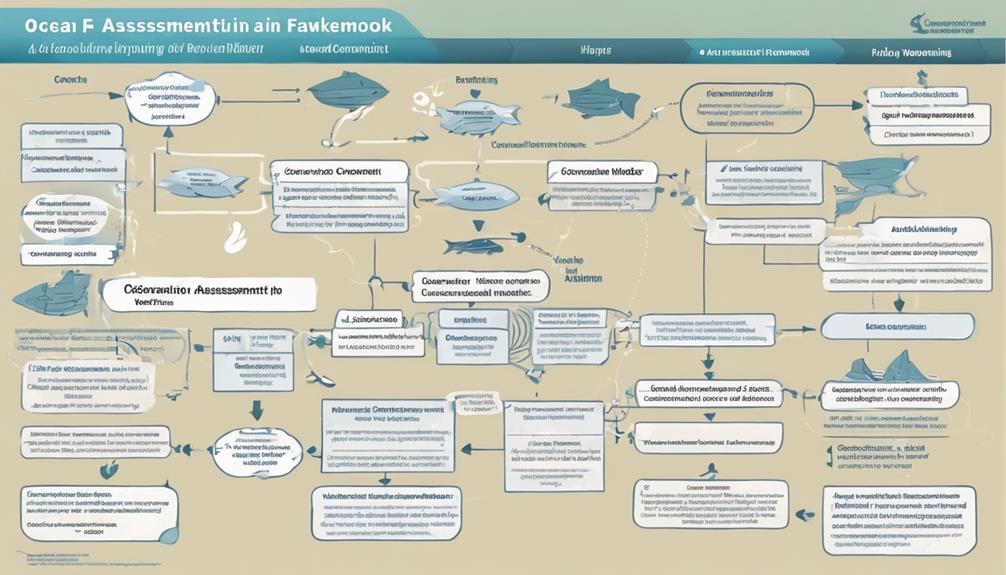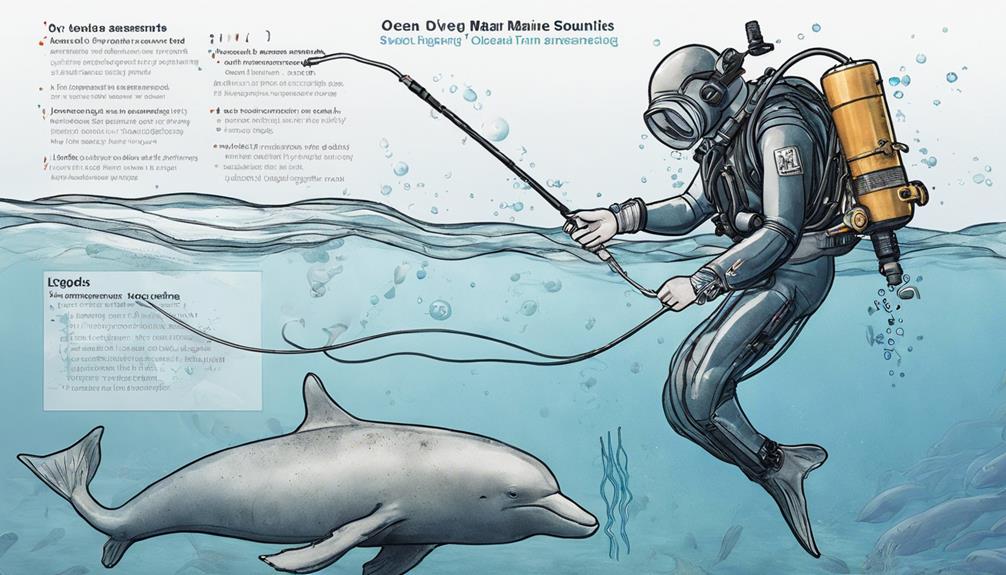Personality Exploration
Guardian Protector Personality Type Explained

Did you know that the Guardian Protector personality type, also known as ISFJ, makes up around 9% to 14% of the population? These warm-hearted and dependable individuals play a crucial role in our society, yet their unique traits and characteristics are often overlooked or misunderstood. In this article, we will delve into the fascinating world of the Guardian Protector personality type and explore their defining qualities, strengths, weaknesses, and much more.
Key Takeaways:
- The Guardian Protector (ISFJ) personality type constitutes around 9% to 14% of the population.
- ISFJs are warm-hearted, responsible, and reserved individuals known for their caring and compassionate nature.
- They excel at noticing details and remembering information about others.
- ISFJs may struggle with expressing their own emotions and may repress or ignore them.
- Appreciating and recognizing the efforts of Guardian Protectors is essential for fostering positive relationships.
Traits of the Guardian Protector Personality Type
The ISFJ personality type, also known as the Guardian Protector, encompasses a range of distinctive traits that shape their character. Guardian Protectors are known for their caring, compassionate nature and their unwavering dependability. They possess a strong work ethic, are kind-hearted, and display a remarkable sense of loyalty towards those they hold dear.
These individuals are organized, practical, and value structure and order in their lives. They have a keen eye for detail and excel at noticing even the smallest nuances in their surroundings. Guardian Protectors are known for their exceptional memory, particularly when it comes to information about others. Their ability to remember important details about people makes them reliable and supportive friends.
However, Guardian Protectors may face challenges when it comes to expressing their own emotions. They tend to prioritize the needs of others and may repress or ignore their own feelings in the process. This selflessness can sometimes lead to neglecting their own well-being, as they strive to provide care and support for those around them.

Despite their gentle nature, Guardian Protectors possess a protective instinct that drives them to ensure the safety and happiness of those they care about. They are sensitive to the needs of others, offering a compassionate ear and providing practical assistance whenever required. Their warm and nurturing demeanor creates a sense of comfort and security for those around them.
“The world is filled with love that I need to give and support that I can provide. Being there for others is what makes me feel truly fulfilled.”
It is important to value and appreciate the unique qualities of Guardian Protectors, recognizing their contributions and the impact they have on the lives of those around them. The strength of their character lies in their genuine concern for others, their reliability, and their ability to create stability within their relationships.
Guardian Protector Traits Summary
- Caring and compassionate
- Dependable and loyal
- Organized and practical
- Warm-hearted and sensitive
- Detail-oriented and observant
Strengths and Weaknesses of the Guardian Protector Personality Type
The Guardian Protector personality type, also known as the ISFJ, possesses a variety of strengths and weaknesses. Recognizing these attributes can provide valuable insight into their interactions and behavior in different situations.
Guardian Protector Strengths:
Guardian Protectors are known for their:
- Reliability and dependability: They can be counted on to fulfill their commitments.
- Practicality: They possess a keen ability to approach situations with a practical mindset.
- Sensitivity: They are highly attuned to the emotions and needs of others.
- Attention to detail: They excel at noticing even the smallest details, making them meticulous in their work.
- Loyalty and dedication: They demonstrate unwavering loyalty and dedication in their relationships and responsibilities.
These strengths make Guardian Protectors valuable assets in various personal and professional settings.
Guardian Protector Weaknesses:
However, Guardian Protectors may also exhibit certain weaknesses, including:
- Dislike for abstract concepts: They tend to prefer practical and concrete information over abstract theories or ideas.
- Avoidance of confrontation: They may find it challenging to initiate or engage in confrontational conversations.
- Resistance to change: They may be reluctant to embrace change and prefer stability and familiarity.
- Neglect of their own needs: They prioritize the needs of others and may neglect their own emotional and personal well-being.
Being aware of these weaknesses allows for better understanding and support of Guardian Protectors in navigating their challenges.
Summary:
In summary, the Guardian Protector personality type demonstrates strengths in reliability, practicality, sensitivity, attention to detail, loyalty, and dedication. Their weaknesses include a dislike for abstract concepts, avoidance of confrontation, resistance to change, and neglect of their own needs. Recognizing and appreciating the strengths of Guardian Protectors while understanding their weaknesses can foster healthy and harmonious relationships.
Cognitive Functions of the Guardian Protector Personality Type
As individuals with the Guardian Protector (ISFJ) personality type gather information and make decisions, they rely on four key cognitive functions. These functions provide insights into how they perceive and interpret the world around them.
- Introverted Sensing (Si): ISFJs have a dominant function of introverted sensing. This function allows them to focus on details and facts, making them highly observant and attentive to their immediate environment. They have a preference for concrete information over abstract theories, relying on past experiences and memories to inform their decisions.
- Extraverted Feeling (Fe): The auxiliary function of ISFJs is extraverted feeling. This function drives them to prioritize social harmony and connection. They have a natural ability to understand the needs and emotions of others, and they strive to create a supportive and inclusive environment. This function also plays a role in their decision-making process as they consider the impact on others.
- Introverted Thinking (Ti): While not as prominent as their dominant and auxiliary functions, ISFJs possess introverted thinking as their tertiary function. This function enables them to analyze information internally and establish logical frameworks. However, they may not rely heavily on this function and may prefer to trust their intuition and personal experiences.
- Extraverted Intuition (Ne): ISFJs have extraverted intuition as their inferior function. This function allows them to explore new possibilities and consider different perspectives. Although it may not be as developed as their other functions, it can provide ISFJs with a sense of curiosity and openness to new ideas.
These cognitive functions offer a glimpse into the thinking processes of Guardian Protectors, showcasing their attention to detail, empathy, and practicality. Understanding these functions can provide valuable insights into the preferences and strengths of individuals with the ISFJ personality type.
Notable Individuals with the Guardian Protector Personality Type
There are several notable individuals who have been identified as having the Guardian Protector (ISFJ) personality type. These individuals demonstrate the caring, reliable, and trustworthy nature of the ISFJ personality type. Here are a few examples:
Famous ISFJs Profession/Field Louisa May Alcott Author of “Little Women” David Petraeus U.S. Army General Mother Teresa Nun and humanitarian Dr. John Watson Character from the Sherlock Holmes series Kristi Yamaguchi Figure skater

Careers Suited for the Guardian Protector Personality Type
The Guardian Protector (ISFJ) personality type possesses characteristics that make them well-suited for various careers. Their empathetic nature and strong sense of responsibility make them a great fit for mental health or healthcare-related jobs, where they can provide compassionate care and support to others.
With their meticulous and organized nature, Guardian Protectors excel in roles that involve planning, structure, and attention to detail. They thrive in management or administrative positions, utilizing their practicality and ability to create order in complex situations.
“Working in the healthcare field allows me to combine my passion for helping others with my innate attention to detail. I enjoy creating a nurturing and organized environment for my patients, ensuring their well-being and providing them with the care they need to thrive.”
Here are some examples of careers that are well-suited for Guardian Protectors:
- Accountant
- Nurse
- Teacher
- Social Worker
These careers allow Guardian Protectors to make a positive impact on the lives of others while utilizing their strengths and fulfilling their sense of duty and responsibility.

Suitable Careers for Guardian Protectors
| Career | Description |
|---|---|
| Accountant | Guardian Protectors excel at managing finances and ensuring accuracy in financial records. Their attention to detail and meticulous nature make them well-suited for this role. |
| Nurse | With their empathetic and caring nature, Guardian Protectors make excellent nurses. They provide compassionate care and emotional support to patients, ensuring their well-being. |
| Teacher | Guardian Protectors have a natural ability to create structure and provide guidance. They thrive as teachers, creating a nurturing environment for their students and facilitating their learning. |
| Social Worker | Guardian Protectors’ compassion and dedication make them well-suited for social work. They assist individuals and families in need, advocating for their well-being and connecting them with necessary resources. |
Building Effective Relationships with Guardian Protectors
When it comes to interacting with Guardian Protector personalities, it’s essential to understand and appreciate their warm and selfless nature. These individuals may find it challenging to express their own feelings, so being a good listener and offering support can help them open up and feel understood. Recognizing their needs and showing genuine appreciation for their efforts is also crucial in fostering strong and meaningful relationships with Guardian Protectors.
For parents of ISFJ children, it’s important to strike a balance between providing structure and discipline while also encouraging their pursuit of individual interests. Allowing them alone time to recharge and engage in activities they enjoy can contribute to their overall well-being and personal growth.
“Effective relationships with Guardian Protectors are built on understanding, empathy, and appreciating their unique strengths and contributions.”
By creating an environment that values and supports their caring nature, you can establish meaningful connections with Guardian Protectors and ensure their continued growth and well-being.

| Action | Benefit |
|---|---|
| Be a good listener | Helps them feel understood and validated |
| Show appreciation | Motivates and encourages their efforts |
| Encourage pursuit of individual interests | Aids in personal growth and enhances well-being |
| Provide structure and discipline | Helps maintain a sense of stability |
Challenges and Growth Opportunities for Guardian Protectors
As Guardian Protectors, we may encounter certain challenges that can impact our personal growth and satisfaction. These challenges often stem from our tendency to repress emotions, resist change, and neglect our own needs. However, by acknowledging and addressing these challenges, we can embark on a journey of self-improvement and experience significant growth.
Challenges Faced by ISFJs
One of the primary challenges for ISFJs is our inclination to repress emotions. While we excel at understanding and supporting others, we often struggle to express our own feelings. This can lead to internal turmoil and an inability to effectively communicate our needs and desires.
The second challenge is our resistance to change. As Guardian Protectors, we prefer stability and familiarity, which can make adapting to new situations challenging. However, in a rapidly changing world, embracing change is crucial for our personal development and expanding our horizons.
Lastly, our dedication to caring for others can often result in neglecting our own needs. We prioritize the well-being of others and may overlook our own self-care. This can lead to physical and emotional exhaustion, affecting our overall happiness and fulfillment.
ISFJ Growth Opportunities
By recognizing these challenges and embracing growth opportunities, we can enhance our well-being and personal development. Here are three key areas for self-improvement:
- Expressing emotions: It’s essential for us to cultivate the ability to identify, acknowledge, and express our emotions. By practicing self-reflection and seeking healthy outlets for emotional expression, such as journaling or talking with trusted individuals, we can enhance our emotional well-being and strengthen our relationships.
- Adapting to change: While change may initially be uncomfortable, it presents opportunities for growth and learning. By actively seeking out new experiences, stepping outside of our comfort zone, and embracing uncertainty, we can develop resilience and expand our skillset.
- Prioritizing self-care: Taking care of ourselves is vital in maintaining personal balance and avoiding burnout. We must learn to set boundaries, practice self-care activities such as exercise, meditation, or hobbies, and ask for support when needed. Prioritizing our own well-being enables us to show up fully for others without sacrificing our own happiness.
By addressing these challenges and empowering ourselves with growth opportunities, we can flourish as Guardian Protectors and lead fulfilling lives.

| Challenges | Growth Opportunities |
|---|---|
| Tendency to repress emotions | Expressing emotions: Developing emotional awareness and finding healthy ways to express feelings. |
| Resistance to change | Adapting to change: Embracing new experiences and stepping outside of the comfort zone. |
| Neglecting own needs | Prioritizing self-care: Setting boundaries, practicing self-care activities, and seeking support when needed. |
The Importance of Appreciating Guardian Protectors
Guardian Protectors, or ISFJs, are compassionate and caring individuals who work tirelessly to ensure the safety and well-being of others. Despite their quiet nature, they possess a deep sense of responsibility and dedication to their roles. However, they can often be taken for granted or underestimated, which can be disheartening for them.
It is crucial to recognize and appreciate the efforts of Guardian Protectors. Expressing gratitude and acknowledging their contributions can go a long way in fostering positive relationships with them. By showing appreciation, we not only validate their hard work and dedication but also build trust and strengthen the bond we share with them.
“Appreciation is a wonderful thing. It makes what is excellent in others belong to us as well.” – Voltaire
When we appreciate ISFJs, we create an environment that encourages them to continue their selfless acts of kindness and support. By valuing their contributions, we motivate them to keep up their compassionate nature and inspire others to do the same.
Next time you encounter a Guardian Protector, take a moment to express your gratitude and recognition for their efforts. Remember, a simple act of appreciation can make a significant difference in their lives and ours.

Conclusion
In conclusion, the Guardian Protector (ISFJ) personality type demonstrates remarkable traits, such as care, dependability, and loyalty. Known for their attention to detail and practicality, they excel in roles that require structure and order. Despite their strengths, Guardian Protectors face challenges regarding the repression of emotions and resistance to change. However, they have the potential for personal growth and self-improvement.
Recognizing and appreciating the efforts of Guardian Protectors is crucial. By valuing their contributions and expressing gratitude, we can foster positive relationships and create a harmonious work environment. Understanding the unique qualities of the ISFJ personality type allows us to better navigate interactions and build stronger connections with Guardian Protectors.
Overall, Guardian Protectors play a vital role in society. Their warm-hearted nature and unwavering dedication make them invaluable in various settings. As we continue to appreciate and support Guardian Protectors, we contribute to a more empathetic and compassionate world.
The Guardian Protector personality type is commonly found in students who prioritize the well-being of others. If you want to find your student traits, look for those who are empathetic, responsible, and dedicated to keeping their peers safe. These individuals are often seen as natural leaders and caretakers within their school community. The Guardian Protector personality type, also known as ISFJ, is one of the 16 personality types identified by the Myers-Briggs Type Indicator (MBTI). ISFJ stands for introverted, sensing, feeling, judging. People with this personality type are warm-hearted, responsible, and reserved.
The Guardian Protector personality type is characterized by traits such as being caring, compassionate, dependable, industrious, kind-hearted, loyal, organized, practical, protective, sensitive, and warm. They excel at noticing details and remembering information about others. The Guardian Protector personality type has strengths such as reliability, practicality, sensitivity, and attention to detail. However, they may also have weaknesses such as a dislike for abstract concepts, avoidance of confrontation, resistance to change, and neglect of their own needs.
The Guardian Protector personality type relies on four key cognitive functions: introverted sensing (focusing on details and facts) and extraverted feeling (driving social harmony and connection). These functions help them in understanding and meeting the needs of others.
Some notable individuals with the Guardian Protector personality type include Louisa May Alcott, author of “Little Women,” David Petraeus, U.S. Army General, Mother Teresa, nun and humanitarian, Dr. John Watson from the Sherlock Holmes series, and figure skater Kristi Yamaguchi.
The Guardian Protector personality type is well-suited for careers in mental health, healthcare, planning, structure, attention to detail, management, administration, and roles that require practicality and the ability to create order.
When interacting with Guardian Protector personalities, it is important to be aware of their warm and selfless nature. Being a good listener, offering support, recognizing their needs, and showing appreciation for their efforts can help foster positive relationships with them. Guardian Protectors may face challenges related to repressing emotions, resistance to change, and neglecting their own needs. However, by acknowledging these challenges and learning to express emotions, adapt to change, and prioritize self-care, they can experience personal growth and improve their overall well-being.
Guardian Protectors are compassionate and caring individuals who often work tirelessly to ensure the safety and well-being of others. Recognizing and appreciating their efforts can go a long way in fostering positive relationships and creating a harmonious work environment.
The Guardian Protector personality type, also known as ISFJ, is characterized by traits such as caring, dependability, and loyalty. They excel in roles that require attention to detail, practicality, and structure. While they may face challenges related to repressing emotions and resistance to change, they have the potential for personal growth and self-improvement.
Is the Guardian Protector Personality Type Common in Students?
FAQ
What is the Guardian Protector personality type?
What are the traits of the Guardian Protector personality type?
What are the strengths and weaknesses of the Guardian Protector personality type?
What are the cognitive functions of the Guardian Protector personality type?
Who are some notable individuals with the Guardian Protector personality type?
What careers are suitable for the Guardian Protector personality type?
How can I build effective relationships with Guardian Protectors?
What are the challenges and growth opportunities for Guardian Protectors?
Why is it important to appreciate Guardian Protectors?
What is the Guardian Protector personality type summary?
Emmeline is the backbone of our content creation team, bringing complex psychological concepts to life with clarity and empathy. As our Expert Writer, she crafts engaging, insightful articles that guide readers through the intricacies of personality assessments and what they reveal about the human condition. Her passion for psychology and personal development shines through in every piece she writes.
The Big Five (OCEAN)
What Is the Tax Assessment for 1320 Vina Ave Ocean Nj?
Tantalizingly close to uncovering the tax assessment for 1320 Vina Ave in Ocean, NJ, embark on a journey to unravel the intricate factors shaping property evaluations.

As we approach the virtual entrance of 1320 Vina Ave in Ocean, NJ, the question hangs in the air: what is the tax assessment for this property?
While the specifics may not be immediately apparent, the intricate web of factors that influence tax assessments holds the key to unraveling this mystery.
Join us as we explore the nuances of property tax assessments, shedding light on the importance of accurate evaluations and the potential implications for homeowners.
Key Takeaways
- The tax assessment for 1320 Vina Ave, Ocean, NJ is crucial for determining property tax obligations.
- Property characteristics, location, and market conditions influence the tax assessment.
- Accuracy in assessment ensures fair taxation and equitable distribution of tax burden.
- Homeowners can appeal the assessment if they believe it is inaccurate, potentially reducing property taxes.
Understanding Property Tax Assessments
When assessing property taxes, we consider various factors that impact the value of a property in order to determine the tax owed to the local government. In the case of 1320 Vina Ave in Ocean, NJ, the tax assessment hinges on the property's value as determined by the local tax assessor. This valuation plays a crucial role in calculating how much the property owner will need to pay in taxes to the local government.
Factors such as the size of the property, its location, any improvements made, and comparable sales in the area are all taken into account during the assessment process. By analyzing these elements, the tax assessor aims to distribute the tax burden among property owners fairly and accurately.
It's vital to comprehend that changes in property tax assessments can significantly impact the annual tax obligations of a property owner, making it imperative to stay informed about the assessment process and one's property rights reserved.
Factors Influencing Tax Assessment

Factors influencing tax assessment include the property's characteristics, market conditions, and any recent changes in property value. The size, location, amenities, and recent sales of comparable properties all play a crucial role in determining the tax assessment value. Property improvements, renovations, and fluctuations in the real estate market can also impact the assessment. Additionally, the tax assessment is essential for calculating property taxes owed to the local government. Property owners should be aware that they have the right to appeal the assessment if they believe it is inaccurate. Below is a table summarizing the key factors that influence tax assessment:
| Factors Influencing Tax Assessment |
|---|
| Property Characteristics |
| Market Conditions |
| Recent Changes in Property Value |
Importance of Accurate Assessments
Accurate assessments play a pivotal role in ensuring fair and equitable property tax obligations for homeowners in Ocean, NJ.
- Fair Taxation: Accurate assessments help distribute the tax burden fairly among property owners based on the actual value of their properties.
- Equity: Ensuring accuracy in assessments prevents disparities where some homeowners may be unfairly taxed more or less than others.
- Budget Planning: Property tax revenues are a significant source of income for local governments, and accurate assessments are essential for proper budget planning and allocation of resources.
- Community Development: Properly assessed property taxes contribute to the funding of essential services like schools, infrastructure, and public safety, fostering community development.
Appeals Process for Tax Assessments

Initiating an appeal for a tax assessment involves submitting a formal written request to the local tax assessor's office. Property owners who believe their tax assessment is inaccurate or unfair can follow this process.
The appeal typically requires the submission of evidence supporting the property owner's claim, such as recent comparable property sales or a professional appraisal. This evidence is crucial in demonstrating why the current assessment may not align with the property's actual market value.
The outcome of a tax assessment appeal can lead to a revision of the property's assessed value, potentially resulting in lower property taxes for the owner. It's essential for property owners to carefully review their assessment and consider appealing if they've valid reasons to believe it's incorrect.
Impact of Tax Assessments on Homeowners
Given the potential financial implications of tax assessments on homeowners, understanding how these assessments impact property taxes and overall housing costs is crucial.
- Tax assessments directly influence property taxes, with higher assessments often resulting in increased tax burdens for homeowners.
- The assessment for a property like 1320 Vina Ave can play a significant role in determining its resale value, as it reflects the local government's valuation of the property.
- Homeowners have the option to appeal tax assessments if they believe the assessed value doesn't align with the actual market value of their property.
- Being knowledgeable about tax assessments is essential for homeowners to effectively manage their financial responsibilities and plan their budgets accordingly.
Considering these factors, homeowners must stay informed about tax assessments to make informed decisions regarding their property investments and financial well-being.
Frequently Asked Questions
How Do Property Tax Assessments Differ for Residential and Commercial Properties?
When comparing property tax assessments for residential and commercial properties, it's essential to note the differing evaluation methods. Residential properties are typically assessed based on their market value and comparable sales in the area, while commercial properties may also consider the income generated or cost to replace the property.
This variation reflects the distinct purposes and characteristics of these property types, impacting how tax assessments are calculated and adjusted.
Are There Any Exemptions or Deductions Available for Property Tax Assessments in Ocean, Nj?
In Ocean, NJ, there are exemptions and deductions available for property tax assessments. These can provide relief for certain homeowners, such as seniors or disabled individuals, easing the financial burden of property ownership.
Understanding these options is crucial for maximizing savings and ensuring fair taxation. By exploring these exemptions and deductions, homeowners can navigate the complexities of property tax assessments with confidence and peace of mind.
Can Property Owners Request a Reassessment of Their Tax Assessment Outside of the Formal Appeals Process?
Yes, property owners can request a reassessment of their tax assessment outside of the formal appeals process. This option allows for a proactive approach to potentially lower property taxes.
How Do Tax Assessments Affect the Resale Value of a Property in Ocean, Nj?
When considering how tax assessments impact property resale value in Ocean, NJ, it's crucial to recognize the direct correlation between assessment amounts and potential buyer perception.
Higher tax assessments can deter buyers seeking affordability, while lower assessments may attract budget-conscious buyers.
These assessments serve as a key factor in determining a property's overall market appeal and can significantly influence its resale value.
Are There Any Community Initiatives or Programs in Ocean, NJ Aimed at Helping Homeowners Understand and Manage Their Tax Assessments?
There are community initiatives and programs in Ocean, NJ aimed at helping homeowners understand and manage their tax assessments. These programs often provide workshops, resources, and guidance to navigate the complexities of tax assessments.
By participating in these initiatives, homeowners can gain valuable insights into how tax assessments impact their property values and learn strategies to potentially lower their tax burden.
How Can I Determine the Tax Assessment for a Property in Ocean, NJ?
To determine the tax assessment for a property in Ocean, NJ, follow these effective ocean assessment steps. First, gather property details from the local assessor’s office. Next, review recent sales of similar properties in the area. Then, compare the assessed value to the market value. Finally, consider appealing the assessment if needed.
Conclusion
In conclusion, accurate property tax assessments are crucial for homeowners as they directly impact the amount of taxes they pay.
One interesting statistic to note is that the tax assessment for 1320 Vina Ave, Ocean, NJ 07712 isn't provided, but the property's Zestimate has increased by $19,472 (2.7%) in the past 30 days.
This highlights the fluctuating nature of property values and the importance of staying informed about tax assessments.
Eugene brings a fresh, dynamic voice to our platform as one of our talented Writers. Specializing in research-driven content, he explores the latest findings in psychology and personal growth, translating them into actionable insights for our readers. Eugene’s work is fueled by a curiosity about what makes us tick and a desire to help others unlock their potential.
The Big Five (OCEAN)
Ocean Assessment Framework: A Step-by-Step Guide
Keen to unlock the secrets of sustainable ocean management? Dive into the Ocean Assessment Framework for a transformative journey towards marine conservation.

As we explore the extensive waters of our oceans, it is important to recognize that only a mere 7% of the world’s oceans are currently protected. With such a small percentage safeguarded, our comprehension and care for marine environments become essential.
The Ocean Assessment Framework offers a structured path towards sustainable ecosystem management, but what exactly makes this guide a pivotal tool in the realm of marine conservation?
Let's explore the intricate steps laid out within this framework and uncover how it can shape the future of our oceans.
Key Takeaways
- Assess biodiversity, habitat quality, and water conditions for marine ecosystem health
- Utilize data analysis tools to monitor ocean parameters and trends effectively
- Implement conservation measures like Marine Protected Areas and sustainable practices
- Promote respectful behavior towards oceans and support initiatives for marine ecosystem conservation
Importance of Ocean Assessment Framework
The Ocean Assessment Framework stands as an indispensable tool in our efforts to assess the health and sustainability of marine ecosystems. This structured approach allows us to comprehensively understand the impacts of human activities on oceans, paving the way for informed decision-making.
By providing a systematic method for monitoring marine resources, the framework enables us to implement conservation measures effectively. Through assessing oceans using this framework, we can pinpoint key areas requiring intervention and management, thus directing resources where they're most needed.
This process is vital in promoting sustainable practices and safeguarding marine biodiversity, ensuring the long-term health of our oceans. In essence, the Ocean Assessment Framework serves as a beacon guiding our conservation efforts, offering a pathway towards a future where marine ecosystems thrive in harmony with human activities.
Key Indicators for Marine Ecosystems

Assessing the health of marine ecosystems involves closely monitoring key indicators such as biodiversity levels, habitat quality, water quality, and population trends of key species. These indicators provide valuable insights into the overall well-being of marine environments. For instance, changes in coral reef health, seagrass coverage, and mangrove distribution are crucial factors that reflect the ecological balance within these ecosystems. Additionally, tracking nutrient levels, presence of pollutants, and ocean acidification levels are essential for understanding the impact of human activities on marine environments.
Population dynamics of fish stocks, migratory patterns of marine species, and changes in sea surface temperature serve as critical indicators for assessing the resilience of marine ecosystems to environmental stressors. Furthermore, monitoring the extent of marine protected areas, presence of invasive species, and trends in marine pollution play a vital role in evaluating the effectiveness of conservation efforts aimed at preserving marine biodiversity. By focusing on these key indicators, scientists and policymakers can make informed decisions to safeguard the health of our oceans for future generations.
Data Analysis for Ocean Assessment
Monitoring and analyzing data on various ocean parameters, such as temperature, salinity, pH, and biodiversity, is essential for comprehensive ocean assessment. Scientists employ advanced tools like satellites, buoys, and research vessels to gather data, which is then subjected to statistical methods and modeling techniques for interpretation.
This data analysis reveals crucial trends, patterns, and anomalies within the ocean ecosystem, providing valuable insights for effective management and conservation strategies. By integrating data analysis into ocean assessment, policymakers, researchers, and conservationists can make informed decisions to promote sustainable ocean management.
The use of sophisticated analytical approaches not only aids in understanding the current state of the oceans but also enables the prediction of future scenarios, facilitating proactive conservation measures. Through meticulous data analysis, we can delve deeper into the intricate workings of the marine environment and work towards preserving its delicate balance for future generations.
Implementing Conservation Measures

To enhance the preservation of marine ecosystems, a comprehensive approach integrating various conservation measures is essential. When implementing conservation measures, we must consider the interconnectedness of marine life and the delicate balance of the ocean environment. Here are key steps to effectively implement conservation measures:
- Establish Marine Protected Areas: Creating designated zones helps protect biodiversity and critical habitats from human activities such as overfishing and habitat destruction.
- Reduce Threats: Conservation measures focus on mitigating threats like overfishing and pollution that endanger marine species and disrupt the marine ecosystem's equilibrium.
- Promote Sustainable Practices: Encouraging sustainable fishing practices and reducing pollution ensures the long-term health and resilience of marine resources for future generations.
Making a Positive Impact on Oceans
Promoting sustainable practices in ocean conservation is key to making a positive impact on marine ecosystems. By implementing marine spatial planning, we can effectively manage human activities in oceans, reducing harmful impacts on marine life.
Following an ecosystem-based management approach is crucial for the conservation of marine ecosystems, ensuring a balanced and healthy ocean environment. Sustainable practices in utilizing marine resources are essential for the long-term health of our oceans, preventing overexploitation and depletion of vital species.
Integrating environmental concerns into planning processes is fundamental for sustainable ocean management, fostering a holistic approach that considers the interconnectedness of marine systems. Initiatives like Respectzone play a significant role in promoting respectful behavior towards the oceans, encouraging responsible actions that contribute to conservation efforts.
Frequently Asked Questions
What Is the Big 5 Framework Ocean?
We've got you covered!
The Big 5 framework, also known as OCEAN, delves into personality traits like Openness, Conscientiousness, Extroversion, Agreeableness, and Neuroticism. It offers valuable insights into behaviors, work preferences, and values of individuals.
Widely used in psychology and recruitment, the Big 5 model helps in making informed hiring decisions and fostering effective team dynamics. It's a powerful tool for understanding people and optimizing workplace interactions.
What Is the OCEAN 5 Factor Model?
Sure, the OCEAN 5 Factor Model categorizes personality traits into Openness, Conscientiousness, Extroversion, Agreeableness, and Neuroticism.
It's a tool for understanding behavior, values, and work preferences.
Widely used in psychology and recruitment, OCEAN aids in making informed hiring decisions and matching candidates to suitable roles.
Understanding this model enhances recruitment accuracy, contributing to building effective teams.
What Are the 5 Main Components of Personality Represented by the Ocean Model Discussed in Chapter 12?
We find the Ocean model in Chapter 12 detailing 5 key personality components:
- Openness, which measures receptiveness to new experiences and creativity.
- Conscientiousness, covering traits like organization and dependability.
- Extroversion, gauging energy levels around others.
- Agreeableness, assessing interpersonal harmony and pro-social behaviors.
- Neuroticism, which evaluates emotional stability.
These elements collectively provide a comprehensive view of an individual's personality traits.
What Are the Five Letters of Ocean Model?
The five letters of the OCEAN model are Openness, Conscientiousness, Extroversion, Agreeableness, and Neuroticism. These letters represent crucial personality traits that provide deep insights into individual behaviors and workplace dynamics.
Understanding each trait helps in comprehending how individuals interact, handle stress, and approach tasks. Employing the OCEAN model can greatly enhance team building efforts and improve strategies for managing employees effectively.
What Are the Key Steps in Using the Ocean Assessment Framework for Marine Research?
When conducting marine research, utilizing ocean assessment tools is crucial. The key steps in using the Ocean Assessment Framework for marine research involve collecting relevant data, analyzing the information, and interpreting the findings to gain insights into the health and quality of the marine environment.
Conclusion
In conclusion, the Ocean Assessment Framework offers a systematic approach to managing marine ecosystems, ensuring their sustainability and health. By utilizing key indicators and data analysis, we can implement conservation measures that make a positive impact on oceans.
How can we continue to protect and preserve our marine resources for future generations to enjoy?
Eugene brings a fresh, dynamic voice to our platform as one of our talented Writers. Specializing in research-driven content, he explores the latest findings in psychology and personal growth, translating them into actionable insights for our readers. Eugene’s work is fueled by a curiosity about what makes us tick and a desire to help others unlock their potential.
The Big Five (OCEAN)
Top 3 Ocean Assessment Tools for Marine Researchers
Wade into the depths of marine research with the top three ocean assessment tools that are revolutionizing how we explore and conserve our oceans.

We have all faced the daunting challenge of choosing the best ocean assessment tools for our research projects. But have no fear, as we explore the wide array of options to identify the top three essential tools for marine researchers.
These tools are not only essential but also groundbreaking in their capabilities to unravel the mysteries of the ocean depths. So, which tools made the cut and why are they indispensable assets for those exploring the marine realm?
Stay tuned to discover the key players shaping the future of oceanic research and conservation.
Key Takeaways
- Underwater Drones (ROVs) aid in high-resolution ocean floor mapping and provide access to deep ocean environments.
- Acoustic technology efficiently covers large areas in surveys, helping in tracking fish populations and assessing biodiversity.
- Satellite imaging offers real-time data on ocean parameters, supporting global conservation efforts and monitoring climate change impacts.
- Data analysis tools provide insights into marine ecosystem health, aiding in sustainable management of ocean resources and guiding conservation efforts.
Underwater Drones for Ocean Mapping
Underwater drones, also known as Remotely Operated Vehicles (ROVs), play a crucial role in high-resolution ocean floor mapping for marine researchers. Equipped with cameras, sensors, and sampling devices, these drones allow us to explore the depths of the ocean where human divers can't reach.
The ability to operate at great depths provides us with access to a world teeming with diverse marine organisms and unique ecosystems. ROVs enable us to study the water column, collect samples, and analyze the distribution of species in their natural habitat.
Satellite Imaging for Ocean Monitoring

Satellite imaging plays a pivotal role in ocean monitoring by providing real-time data on essential parameters such as ocean surface temperature, chlorophyll concentration, and sea level height. These images help monitor ocean currents, detect phytoplankton blooms, and track changes in sea ice extent. The table below illustrates some of the key aspects of satellite imaging for ocean monitoring:
| Parameters | Information Provided | Application |
|---|---|---|
| Ocean Surface Temperature | Helps track variations in temperature, aiding in the prediction of weather events. | Monitoring climate change impacts. |
| Chlorophyll Concentration | Indicates levels of phytoplankton, crucial for understanding marine ecosystems. | Detecting phytoplankton blooms. |
| Sea Level Height | Assists in studying sea level rise and ocean circulation patterns. | Monitoring coastal erosion and storm surges. |
Satellite data aids in understanding ocean circulation patterns, identifying marine pollution, and predicting weather events. Researchers utilize satellite imaging to study coral reef health, monitor coastal erosion, and assess the impact of climate change on oceans. The continuous monitoring capabilities of satellite imaging support global efforts in ocean conservation and management.
Acoustic Technology for Marine Surveys
Utilizing acoustic technology, marine researchers employ sound waves to map the seafloor and detect marine organisms in comprehensive surveys. Acoustic surveys play a vital role in studying marine habitats, tracking fish populations, and assessing biodiversity in underwater environments.
Here are four key aspects of how acoustic technology enhances marine surveys:
- Efficient Coverage: Acoustic surveys can efficiently cover large areas, providing researchers with extensive data on marine ecosystems and their overall health.
- Species Identification: By analyzing acoustic data, scientists can identify species distributions, migratory patterns, and even detect underwater structures essential for marine life.
- Conservation Guidance: Acoustic technology is crucial for understanding marine environments, guiding conservation efforts, and promoting sustainable management of ocean resources.
- Ecosystem Health: Acoustic surveys help researchers monitor the health of marine ecosystems, offering valuable insights for preserving these vital habitats.
Frequently Asked Questions
What Are 3 Tools Oceanographers Use?
We use Conductivity-Temperature-Depth (CTD) profilers to measure properties like salinity, temperature, and depth.
Environmental sensors on collecting nets help us gather data on marine organisms.
Satellite data provides crucial real-time information for monitoring.
CTD rosettes collect water samples at various depths.
Remotely Operated Vehicles (ROVs) are essential for exploring ocean depths.
These tools help us study marine environments more effectively and understand ocean processes better.
What Are the 3 Technologies for Studying the Ocean Floor?
When studying the ocean floor, researchers rely on multibeam bathymetric systems for detailed seafloor mapping. Sonar and seismic profiling technologies provide geological insights, while acoustic systems are used for biomass estimation.
These tools collectively offer a comprehensive understanding of oceanic structures, processes, and marine life. By combining these technologies, marine researchers gain valuable data to further our knowledge of the underwater world.
What Are Some Tools Marine Scientists Use to Study the Ocean?
We utilize various tools to study the ocean, including CTD profilers for measuring physical data, multibeam bathymetric systems to map seafloor topography, and acoustic systems for estimating biomass.
Water sampling devices like the CTD/rosette system help gather data for chemical analysis.
Remotely Operated Vehicles (ROVs) allow us to explore ocean depths and conduct research in challenging environments.
These tools provide valuable insights into marine ecosystems and ocean properties.
Which Tool Would a Scientist Use to Study Ocean Currents?
We'd use Acoustic Doppler Current Profilers (ADCPs) to study ocean currents. These instruments measure water velocities at different depths non-intrusively using Doppler technology. ADCPs can be mounted on moorings, boats, or autonomous underwater vehicles for continuous monitoring.
The data they provide is crucial for understanding ocean circulation dynamics and their impact on climate systems. By creating models and forecasts based on ADCP data, we can advance various marine research studies effectively.
How are the Ocean Assessment Tools for Marine Researchers Different from the Global Marine Assessment?
Ocean assessment tools for marine researchers focus on local and specific data collection, analysis, and monitoring of marine environments. In contrast, the global marine assessment provides insights into the overall health and condition of the world ocean, considering a broader perspective on the state of marine ecosystems and resources.
Conclusion
In conclusion, the top 3 ocean assessment tools for marine researchers provide invaluable insights into the health and dynamics of our oceans.
Underwater drones, satellite imaging, and acoustic technology offer precise data for mapping, monitoring, and surveying marine environments.
Their combined capabilities create a comprehensive understanding of ocean ecosystems, aiding in conservation efforts.
The use of these advanced tools enhances our ability to protect and preserve our precious marine resources.
Eugene brings a fresh, dynamic voice to our platform as one of our talented Writers. Specializing in research-driven content, he explores the latest findings in psychology and personal growth, translating them into actionable insights for our readers. Eugene’s work is fueled by a curiosity about what makes us tick and a desire to help others unlock their potential.
-

 Self-Understanding3 months ago
Self-Understanding3 months agoUnderstanding DMCA Protections & Compliance
-

 Relationship Dynamics3 months ago
Relationship Dynamics3 months agoCan a Man Truly Love His Side Chick
-

 Enneagram of Personality1 week ago
Enneagram of Personality1 week agoEnneagram Test: Printable Version for Easy Self-Discovery
-

 Personality Exploration3 weeks ago
Personality Exploration3 weeks agoDiscover Your Traits with Atomic Habits Personality Test
-

 Personality Exploration3 months ago
Personality Exploration3 months agoDOPE Personality Test Explained: Traits & Types
-

 Personality Exploration2 weeks ago
Personality Exploration2 weeks agoAlpha Beta Omega Personality Test Explained
-

 Personality Exploration3 months ago
Personality Exploration3 months agoAlpha Beta Omega Sigma Female Personality Quiz
-

 Self-Understanding2 months ago
Self-Understanding2 months agoDiscover Your Traits with Our Personality Test

















